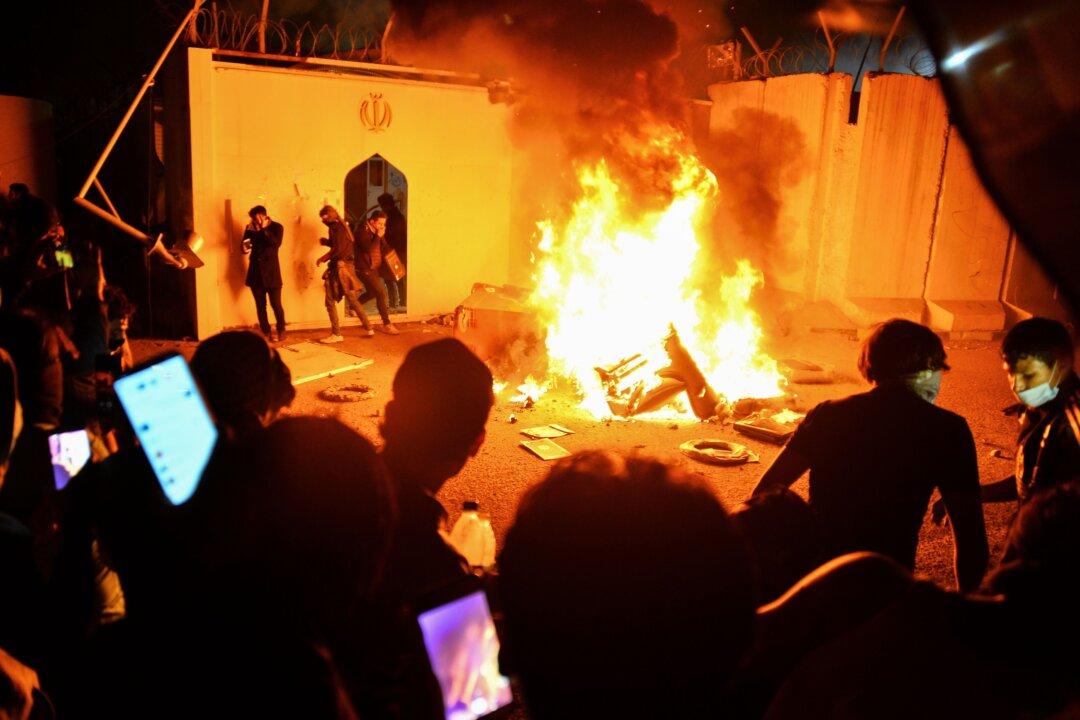At least 45 protesters were shot dead by Iraqi security forces on Nov. 28 after demonstrators set fire to an Iranian consulate the night before, amid a months-long uprising against the Tehran-backed authorities.
Protesters set ablaze the Iranian consulate in Iraq’s city of Najaf in what was described by reports as one of the worst attacks targeting Iranian interests in the country since the protests first erupted two months ago. No Iranian staff were harmed in the attack, as they escaped out the back door.





